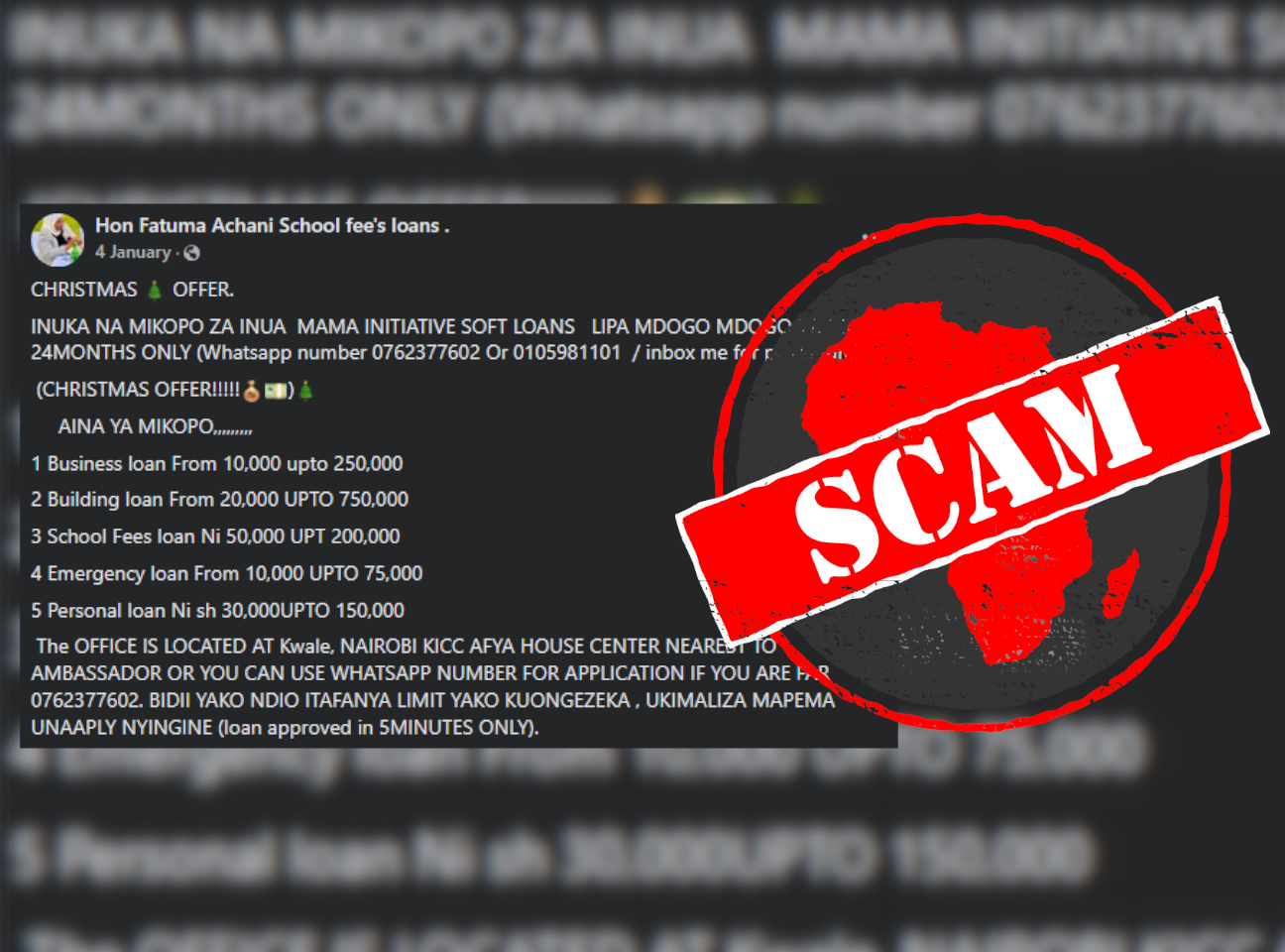IN SHORT: The governor of the coastal county of Kwale, Fatuma Achani, told Africa Check that she does not give loans to Kenyans. Facebook accounts claiming otherwise are fake.
The Facebook accounts Hon Fatuma Achani loans., Hon Fatuma Achani School fee’s loans and Fatuma Achani are advertising loans to Kenyans.
The accounts use the name and photos of Fatuma Achani, the governor of Kwale county, which is 50 kilometres from Kenya’s capital, Nairobi.
Achani was sworn in as governor following the August 2022 general elections, becoming the first female governor in the country’s coastal region. She was previously the county’s deputy governor.
A post on one of the accounts advertised loans of up to KSh750,000 (about US$5,690).
The accounts also provide different telephone numbers where users can supposedly apply for loans. The offers can be seen here, here and here.
Africa Check has in the past exposed Facebook accounts targeting Achani and other leaders.
But can you trust these three offering loans? We checked.

Ignore fake accounts with scam offers
The first indication that these accounts are fake is the poorly written posts. This is uncharacteristic of a governor’s social media platform.
Some of the posts on the Facebook accounts claim that the loans are from Inua Jamii, a Kenyan government programme that provides cash grants to poor and vulnerable people.
However, Inua Jamii has repeatedly said that it provides cash grants, not loans.
We contacted the governor to find out if she was offering loans on Facebook. Achani replied by referring us to her official Facebook page, saying that she does not offer loans to the public.
“This is my official Facebook account. I am not offering any loans to anyone. Kindly note that those are scammers, and I have several times reported the accounts for closure,” she said.
Achani’s official Facebook page has over 15,000 followers. It features posts about her daily activities and whereabouts. Her page makes no mention of any loan offers and publishes well-written messages.
Ignore the accounts impersonating her. You can also report any suspicious Facebook posts by clicking on the three dots in the top-right corner of the post and selecting “report post” from the drop-down menu.
Republish our content for free
For publishers: what to do if your post is rated false
A fact-checker has rated your Facebook or Instagram post as “false”, “altered”, “partly false” or “missing context”. This could have serious consequences. What do you do?
Click on our guide for the steps you should follow.
Publishers guideAfrica Check teams up with Facebook
Africa Check is a partner in Meta's third-party fact-checking programme to help stop the spread of false information on social media.
The content we rate as “false” will be downgraded on Facebook and Instagram. This means fewer people will see it.
You can also help identify false information on Facebook. This guide explains how.




Add new comment